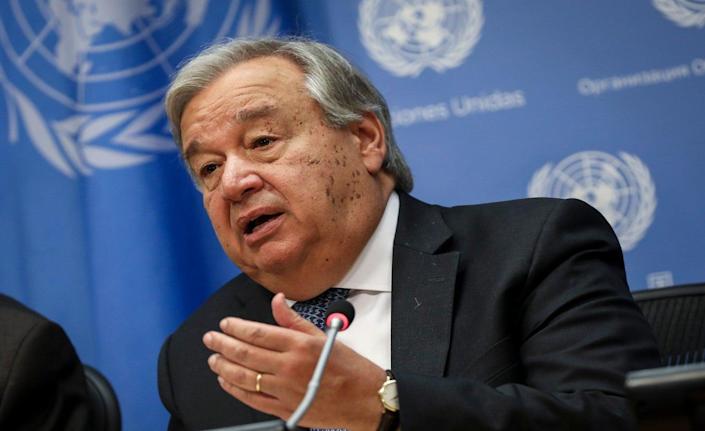
United Nations Secretary-General Antonio Guterres on Wednesday announced that the U.N. will spearhead an effort to make early weather-warning systems available in the range of everyone on Earth in the next five years.
That effort will be led by the World Meteorological Organization (WMO), a U.N. agency, Guterres said, according to a press release from the WMO. It will focus on making alert systems available in the developing world, as they are already widely used by many wealthy countries.
Early warning systems provide people with more time to brace for potentially deadly disasters like heat waves, flooding and droughts and offer information on how governments, communities and individuals can minimize their impact, per the WMO. Those warnings are “critical” in helping reduce disaster risks and support climate adaptation, Guterres said.
“However, one-third of the world’s people, mainly in least developed countries and small island developing states, are still not covered by early warning systems,” Guterres said, noting that 60 percent of people lack coverage in Africa.
“This is unacceptable, particularly with climate impacts sure to get even worse,” Guterres said in a statement, adding that “early warnings and action save lives.”
For roughly the last 50 years, a weather, climate or water-related disaster has on average occurred daily, according to the WMO.
“We must boost the power of prediction for everyone and build their capacity to act,” the U.N. secretary-general said.
Guterres said he had instructed the WMO to present an “action plan” to achieve the goal of full early warning system coverage in the next five years at the next U.N. climate conference, which is set to occur in Egypt later this year.




